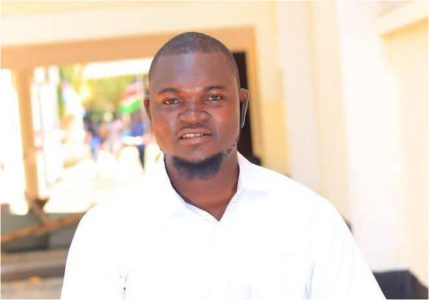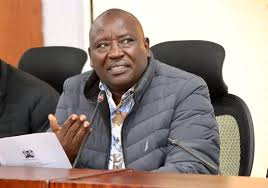Kitui Central Member of Parliament (MP) Makali Mulu has come out strongly against President William Ruto’s administration for broken promises amid police brutality and abductions.
Mulu, in his sentiments during an interview with a local TV station on June 11, 2025, accused the current administration of failing to protect Kenyans from extrajudicial killings and abductions.
“The continued killings and abductions of Kenyans under President Ruto’s administration, despite his strong stance against the weaponisation of institutions, represent yet another broken promise,” Mulu said.
Mulu’s remarks follow the controversial death of Albert Ojwang, a 31-year-old man who died in police custody under suspicious circumstances, sparking widespread outrage and protests across the country.

He condemned the continued violence and human rights violations under Ruto’s government. His comments reflect a growing sense of frustration over police brutality and the government’s failure to curb it.
Ojwang’s death has become a lightning rod for criticism. He was arrested after allegedly defaming Deputy Inspector General of Police Eliud Lagat on social media, only to end up dead while in police custody. An autopsy report revealed severe head injuries and neck compression, raising suspicions of torture and foul play.
Mulu pointed out the contradiction between the president’s pledges and the reality on the ground. “We were promised a government that respects human rights, yet here we are still counting the dead and the disappeared,” Mulu said.
His remarks come against the backdrop of the 2024 Finance Bill protests that left at least 40 people dead and forced the resignation of then-Inspector General Japhet Koome.
Calls for police reform have intensified in the wake of Ojwang’s death. Human rights groups and the Independent Police Oversight Authority (IPOA) are demanding an independent investigation and justice for the family. Mulu echoed these calls, urging the government to tackle the systemic issues within the police service and ensure accountability.
A postmortem conducted on Tuesday, June 10, 2025, raised serious questions about the police account. Forensic pathologist Bernard Midia reported extensive head injuries, neck compression, bruises on the torso and upper limbs, and defensive wounds on the hands, all signs consistent with physical assault.
“The autopsy findings are a damning indictment of the police force,” Mulu stressed. “We cannot continue to turn a blind eye to these atrocities. We must hold those responsible to account.”
Mulu’s blunt assessment reflects the disillusionment felt by many Kenyans who see a persistent culture of impunity. His words underscore the widespread demand for genuine police reforms and accountability, emphasising that promises of security and respect for human rights must translate into concrete actions rather than political statements. By Faith Lagat, People Daily






